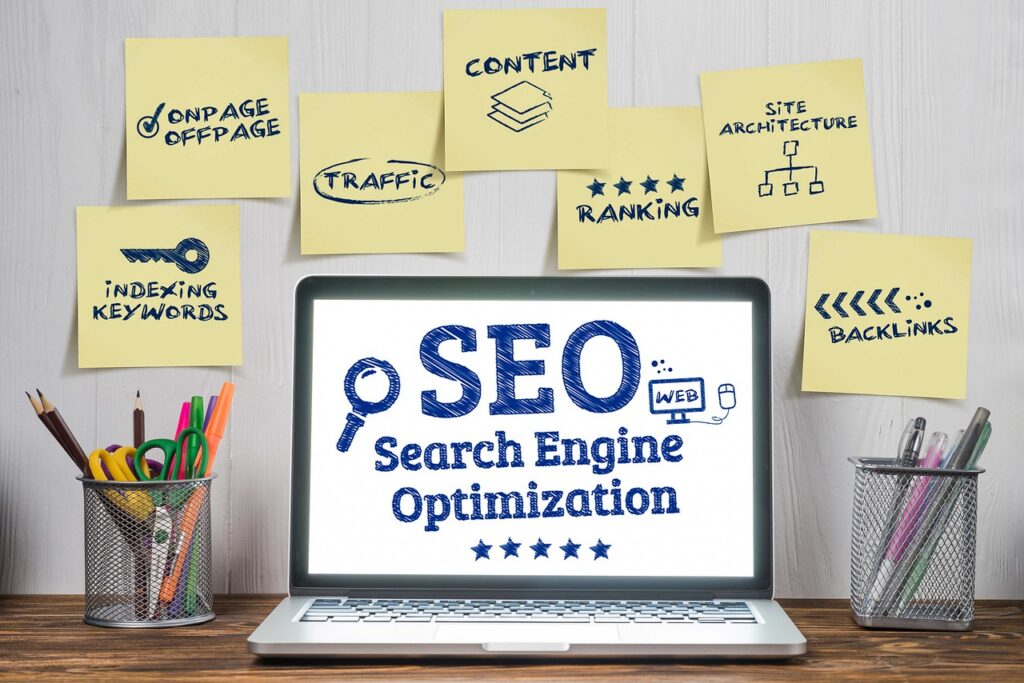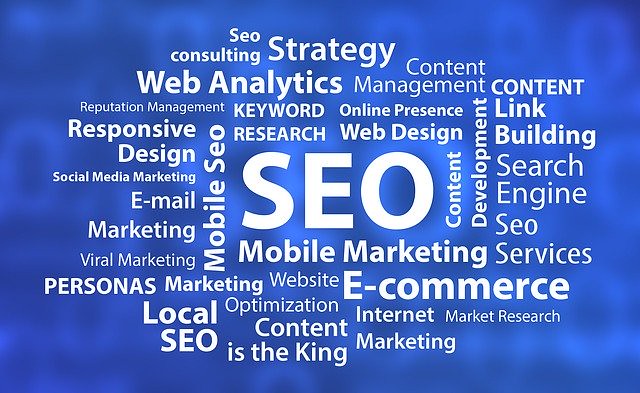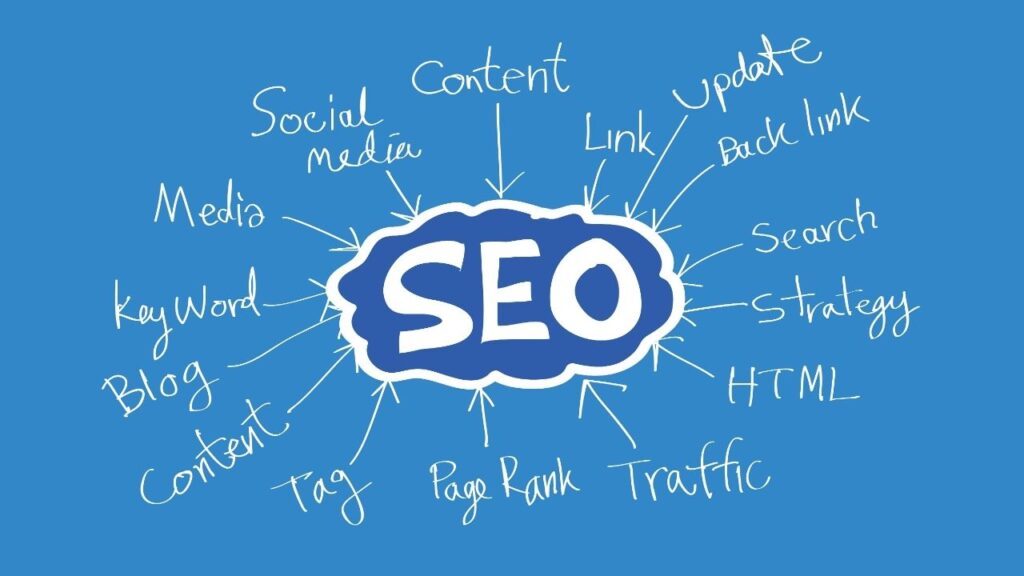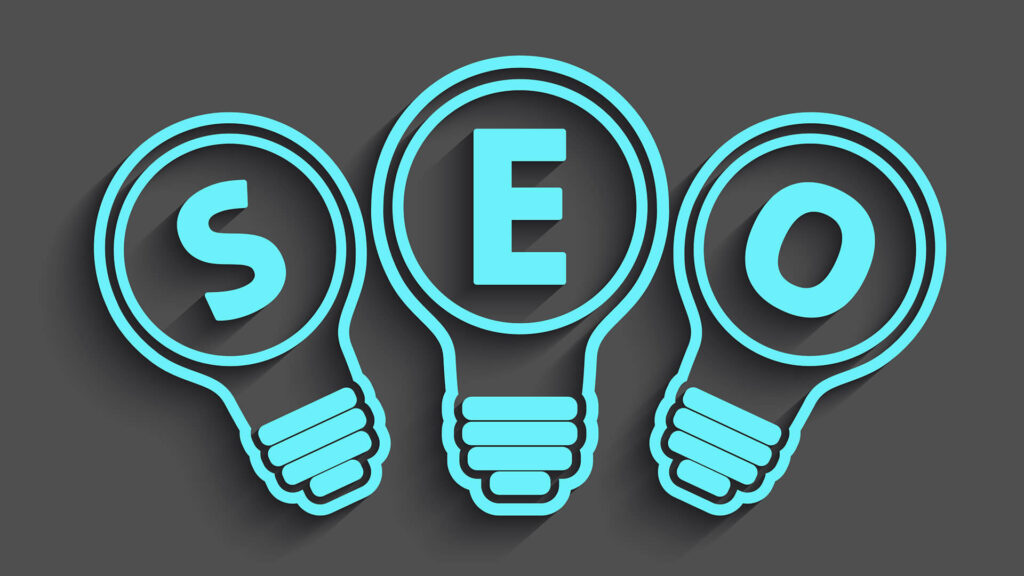The Power of SEO: Why Your Business Needs It to Thrive OnlineBoost Your Online Presence with Expert SEO Services

Unlocking the Power of SEO: A Beginner’s Guide to Understanding Why Every Business Needs It
I. Introduction
A. Explanation of SEO
B. Importance of SEO for businesses
C. Overview of the guide
II. What is SEO?
A. Definition of SEO
B. Key components of SEO
C. Types of SEO
III. Why is SEO important for businesses?
A. Increases online visibility
B. Helps attract the right audience
C. Drives traffic to your website
D. Boosts credibility and trust
E. Increases ROI
IV. How search engines work
A. Explanation of search engine algorithms
B. Key factors that influence search rankings
C. Importance of understanding search engine algorithms
V. On-page SEO
A. Explanation of on-page SEO
B. Key on-page ranking factors
C. Best practices for on-page optimization
VI. Off-page SEO
A. Explanation of off-page SEO
B. Key off-page ranking factors
C. Best practices for off-page optimization
VII. Local SEO
A. Explanation of local SEO
B. Importance of local SEO for businesses
C. Key local ranking factors
D. Best practices for local optimization
VIII. Technical SEO
A. Explanation of technical SEO
B. Key technical ranking factors
C. Best practices for technical optimization
IX. Measuring SEO success
A. Explanation of SEO metrics
B. Key SEO tools for measuring success
C. Best practices for tracking and analyzing SEO
X. Conclusion
A. Recap of key points
B. Final thoughts on the importance of SEO for businesses
C. Call to action

I. Introduction The introduction section of the guide aims to provide a clear understanding of what SEO is and why it is important for businesses. The following subtopics are covered:
- Explanation of SEO: Winglobalinfo.com provides a brief explanation of what SEO is and how it works. They explain that SEO involves optimizing a website to improve its search engine rankings, which ultimately leads to increased online visibility and traffic.
- Importance of SEO for businesses: Winglobalinfo.com emphasizes the importance of SEO for businesses of all sizes and industries. They explain that by implementing effective SEO strategies, businesses can increase their online visibility, attract more qualified traffic, and ultimately, drive revenue growth.
- Overview of the guide: The introduction section ends with an overview of what the reader can expect to learn throughout the guide. Winglobalinfo.com explains that the guide will cover everything from the basics of SEO to advanced strategies and tactics.
II. What is SEO? In this section, winglobalinfo.com provides a detailed explanation of what SEO is, including its key components and types. The following subtopics are covered:
- Definition of SEO: Winglobalinfo.com provides a comprehensive definition of SEO, explaining that it involves optimizing a website’s content, structure, and technical elements to improve its search engine rankings.
- Key components of SEO: The guide goes into detail about the different components of SEO, including on-page, off-page, local, and technical SEO. By understanding each component, businesses can tailor their strategies to their specific needs and goals.
- Types of SEO: Winglobalinfo.com explains that there are two main types of SEO: white hat and black hat. They go into detail about each type and explain why white hat SEO is the preferred approach for businesses that want to achieve long-term success.
III. Why is SEO important for businesses? This section highlights the importance of SEO for businesses. The following subtopics are covered:
- Increases online visibility: Winglobalinfo.com explains that by improving their search engine rankings, businesses can increase their online visibility and attract more qualified traffic to their website.
- Helps attract the right audience: Effective SEO strategies can help businesses attract the right audience by targeting specific keywords and phrases that are relevant to their products or services.
- Drives traffic to your website: By ranking higher in search engine results pages (SERPs), businesses can drive more traffic to their website, which can ultimately lead to increased conversions and revenue.
- Boosts credibility and trust: High search engine rankings can help businesses establish credibility and trust with their target audience, as consumers tend to view top-ranking websites as more reputable and trustworthy.
- Increases ROI: By attracting more qualified traffic and generating more conversions, effective SEO strategies can help businesses achieve a higher ROI on their marketing investments.
IV. How search engines work In this section, winglobalinfo.com provides an in-depth explanation of how search engines work, including their algorithms and key ranking factors. The following subtopics are covered:
- Explanation of search engine algorithms: Winglobalinfo.com explains that search engines use complex algorithms to determine which websites should appear at the top of their SERPs. They go into detail about how these algorithms work and what factors they consider when ranking websites.
- Key factors that influence search rankings: The guide goes into detail about the different factors that can influence search rankings, including content quality, backlinks, website structure, and user experience.
- Importance of understanding search engine algorithms: By understanding how search engine algorithms work, businesses can tailor their SEO strategies to improve their rankings and increase their online visibility.
V. At Winglobalinfo.com, we understand the importance of on-page SEO in improving a website’s search engine rankings and driving organic traffic. On-page SEO refers to optimizing elements on a website that are under the control of the website owner, such as content, title tags, meta descriptions, headers, images, and URLs. By optimizing these elements, businesses can improve their website’s relevance to specific search queries and attract more qualified traffic.
The key on-page ranking factors include content, title tags and meta descriptions, headers, images, and URLs. High-quality, relevant, and unique content is one of the most important on-page ranking factors. Content should be optimized with target keywords and provide value to the reader. Title tags and meta descriptions should be descriptive, contain target keywords, and encourage clicks. Headers help organize content on a page and improve its readability. Images can improve the visual appeal of a website and provide context for content. Image alt text should be optimized with target keywords to help search engines understand the content of the image. URLs should be short, descriptive, and include target keywords.
To optimize on-page elements, businesses should follow best practices for on-page optimization. This includes conducting keyword research to identify the most relevant and valuable keywords for the business, creating high-quality content that is unique, valuable, and relevant to the target audience, and optimizing title tags and meta descriptions to accurately reflect the content on the page and provide a clear summary for search engines and users. Using headers to organize content and include target keywords, optimizing images with alt text, and using descriptive and keyword-rich URLs are also important best practices for on-page optimization.
In conclusion, on-page SEO is a crucial component of search engine optimization, and businesses should prioritize optimizing on-page elements to improve their search engine rankings, attract more qualified traffic, and ultimately drive revenue growth. At Winglobalinfo.com, we offer on-page optimization services to help businesses improve their website’s visibility and attract more customers. Contact us today to learn more about how we can help your business unlock the power of on-page SEO.
VI. At Winglobalinfo.com, we recognize the importance of off-page SEO in improving a website’s search engine rankings and driving organic traffic. Off-page SEO refers to the actions taken outside of a website to improve its visibility and relevance in search engines. This includes link building, social media marketing, influencer outreach, and other tactics that improve a website’s reputation and authority.
The key off-page ranking factors include backlinks, social signals, and online reputation. Backlinks are links from external websites that point to a website. The quantity and quality of backlinks are important ranking factors, as they signal to search engines that other websites consider the content on a website to be valuable and relevant. Social signals, such as likes, shares, and comments on social media, also signal to search engines that a website’s content is valuable and relevant. Online reputation, including reviews and ratings on third-party websites, also impacts a website’s visibility and relevance in search engines.
To optimize off-page elements, businesses should follow best practices for off-page optimization. This includes building high-quality backlinks from relevant and authoritative websites, leveraging social media to promote content and engage with customers, collaborating with influencers and thought leaders in the industry, and monitoring online reputation to maintain a positive image.
In conclusion, off-page SEO is an essential component of search engine optimization, and businesses should prioritize optimizing off-page elements to improve their search engine rankings, attract more qualified traffic, and ultimately drive revenue growth. At Winglobalinfo.com, we offer off-page optimization services to help businesses improve their online reputation, build high-quality backlinks, and engage with customers on social media. Contact us today to learn more about how we can help your business unlock the power of off-page SEO.
VII. Local SEO
A. Explanation of local SEO Local SEO is a digital marketing strategy that helps businesses improve their visibility and relevance in local search results. Local SEO involves optimizing a website’s on-page and off-page elements to appear in search results for local queries, such as “restaurants near me” or “plumbers in Los Angeles”. Local SEO can also involve optimizing a business’s presence on local directories, review sites, and social media platforms.
B. Importance of local SEO for businesses Local SEO is essential for businesses that rely on local customers, such as brick-and-mortar stores, restaurants, and service providers. Local SEO can help these businesses improve their online visibility, attract more qualified leads, and drive foot traffic to their physical locations. Local SEO can also help businesses build trust and credibility with local customers, as positive reviews and ratings on local directories and review sites can improve a business’s online reputation.
C. Key local ranking factors The key local ranking factors include the relevance, distance, and prominence of a business’s location. Relevance refers to how well a business’s website and online presence align with the search query. Distance refers to how far the business’s location is from the searcher. Prominence refers to the popularity and reputation of the business, as indicated by online reviews, ratings, and mentions.
D. Best practices for local optimization To optimize for local SEO, businesses should ensure that their website and online presence are optimized for local queries, such as by including location-specific keywords in title tags, meta descriptions, and content. Businesses should also claim and optimize their Google My Business profile, as well as other local directories and review sites. Encouraging customers to leave positive reviews and ratings on these sites can also improve a business’s online reputation and visibility.
VIII. Technical SEO
A. Explanation of technical SEO Technical SEO refers to the technical elements of a website that impact its visibility and relevance in search engines. Technical SEO involves optimizing a website’s structure, speed, security, and other technical elements to improve its search engine rankings and user experience.
B. Key technical ranking factors The key technical ranking factors include website structure, mobile-friendliness, website speed, security, and crawlability. Website structure refers to how the website is organized and structured, such as with a clear hierarchy of pages and URLs. Mobile-friendliness refers to how well the website performs on mobile devices, such as by using responsive design. Website speed refers to how quickly the website loads, which can impact user experience and search engine rankings. Security refers to the use of HTTPS and other security measures to protect user data. Crawlability refers to how easily search engine crawlers can access and index a website’s content.
C. Best practices for technical optimization To optimize for technical SEO, businesses should ensure that their website is well-structured and uses a mobile-friendly design. Businesses should also optimize website speed, such as by compressing images and minifying code. Implementing HTTPS and other security measures can also improve a website’s search engine rankings and user experience. Ensuring that the website is easily crawlable and indexable can also help search engines understand the content of the website and improve its visibility.
IX. Measuring SEO Success
A. Explanation of SEO Metrics
Measuring the success of an SEO campaign is crucial to ensure its effectiveness and to make data-driven decisions. To measure SEO success, it’s important to track key metrics such as organic traffic, keyword rankings, backlinks, bounce rate, and conversion rate. Organic traffic is the number of visitors to a website that came from search engine results pages (SERPs). Keyword rankings measure the position of a website’s pages in search results for specific keywords. Backlinks are links from other websites that point to a website. Bounce rate is the percentage of visitors who leave a website after viewing only one page. Conversion rate measures the percentage of visitors who take a desired action on a website, such as making a purchase or filling out a form.
B. Key SEO Tools for Measuring Success
There are many SEO tools available that can help measure the success of an SEO campaign. Google Analytics is a free tool that provides website traffic data, including organic traffic, bounce rate, and conversion rate. Google Search Console is another free tool that provides data on website performance in Google search results, including keyword rankings, backlinks, and crawl errors. Other SEO tools like Ahrefs, SEMrush, and Moz offer advanced features for keyword research, backlink analysis, and competitor analysis.
C. Best Practices for Tracking and Analyzing SEO
To track and analyze SEO effectively, it’s important to set clear goals and KPIs (key performance indicators) for the campaign. Regular monitoring of SEO metrics is necessary to identify trends and opportunities for improvement. It’s also important to analyze the data and make data-driven decisions to optimize the SEO strategy. Testing and experimenting with different approaches can help determine what works best for a particular website and audience.
X. Conclusion
A. Recap of Key Points
In this guide, we have discussed the importance of SEO for businesses and covered various aspects of SEO, including on-page optimization, off-page optimization, local SEO, technical SEO, and measuring SEO success. We have learned that SEO is crucial for improving website visibility, increasing organic traffic, and driving conversions. We have also covered key ranking factors and best practices for optimizing different aspects of SEO.
B. Final Thoughts on the Importance of SEO for Businesses
SEO is an ongoing process that requires continuous efforts and adjustments to stay ahead of the competition and maintain visibility in search results. Investing in SEO can pay off in the long run by improving website performance and driving business growth. With the help of SEO experts, businesses can develop and implement effective SEO strategies to achieve their goals.
C. Call to Action
If you want to improve your website’s visibility and drive more organic traffic and conversions, contact Winglobalinfo.com today to learn more about our SEO services. Our team of experts can help you develop and implement a customized SEO strategy that meets your business needs and goals.
Are you looking for a reliable and effective SEO service provider? Look no further than Winglobalinfo.com! Our team of experienced professionals is dedicated to helping businesses improve their online visibility and drive more traffic, leads, and conversions.
When you choose Winglobalinfo.com for your SEO needs, you can expect personalized service and customized solutions that are tailored to your unique business goals and needs. We take the time to understand your business and industry to develop an SEO strategy that works for you.
Our approach to SEO is comprehensive and holistic, covering all aspects of on-page optimization, off-page optimization, technical optimization, local SEO, and more. We use the latest tools and techniques to conduct in-depth keyword research, competitor analysis, and backlink analysis to ensure that your website is optimized for maximum performance.
At Winglobalinfo.com, we believe in transparency and communication. We provide regular progress reports and updates on your SEO campaign, so you can see the results and ROI of your investment. Our team is always available to answer your questions and provide support, so you can focus on running your business.
In addition to SEO, Winglobalinfo.com also offers a wide range of digital marketing services, including PPC advertising, social media marketing, content marketing, and more. Our integrated approach to digital marketing ensures that all aspects of your online presence are optimized for maximum impact.
So why choose Winglobalinfo.com for your SEO service? With our personalized approach, comprehensive solutions, transparent communication, and proven track record of success, we are the partner you need to take your online presence to the next level. Contact us today to learn more and get started!



